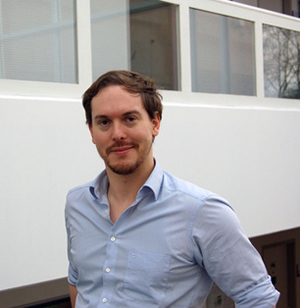11.1.16 | The Leibniz Centre for Tropical Marine Research (ZMT) will receive half a million Euro from the Federal Ministry for Education and Research (BMBF) to further exploit the institute’s research results and innovation potential. The funds have been granted for a total of three years as part of the BMBF programme ”Professionalisation and stabilisation of a transfer concept”. In the future, new processes are to be established at the ZMT in order to adapt research for societal and economic use. Dr. Bevis Fedder, head of the Office for Knowledge Exchange at the ZMT, coordinates the implementation of the concept.
Research at the ZMT lays the scientific foundation for the protection and sustainable use of tropical coastal ecosystems. Mangrove forests, coral reefs and seagrass meadows count among the most productive habitats on Earth. These ecosystems are of great social and economic importance, and the livelihoods of millions of people depend on them. They provide food, produce bioactive substances, act as protection against natural disasters such as storms or floods and are important for tourism.
“We will use the financial support of the BMBF to reorganise knowledge and technology transfer at the ZMT to give an even stronger voice to our research. Thus we will make a vital contribution to the protection and the sustainable use of coastal ecosystems in the tropics,” says Dr. Fedder.
Political consulting would be one of the target fields. “Results from the various research projects that our scientists are involved in can be utilised to develop concrete recommendations for an environmentally safe management of ecosystems on a local, regional and national level,” explains Dr. Fedder.
Furthermore, ZMT-generated processes and results could be applied in a number of different business sectors such as aquaculture, aquaristics, fisheries, waste management industry, food production, sensor technologies, environmental diagnostics and consulting as well as tourism. The Bremen-based institute could also conduct social and environmental impact studies in relation to development schemes, such as building projects or extraction of raw materials.
To implement these plans the ZMT is working closely with an external partner. Dr. Fedder and his team at the Office for Knowlegde Exchange will develop a strategy for integrated utilisation on the basis of already existing transfer processes and at the same time define adaptable processes at the ZMT. “We will focus on screening compatible technologies as well as developing and implementing project-specific transfer plans,” he says.
About the BMBF programme ”Professionalisation and stabilisation of a transfer concept”:
By supporting selected research institutes in the development of strategies and processes in knowledge and technology transfer the BMBF fosters the exchange between independent research institutions, business, politics and society – one of the goal of the Federal Government within its high-tech strategy “Innovations for Germany”.

 Contacts
Contacts
Rebecca Lahl
+49 (0)421 23800 - 163This email address is being protected from spambots. You need JavaScript enabled to view it.




